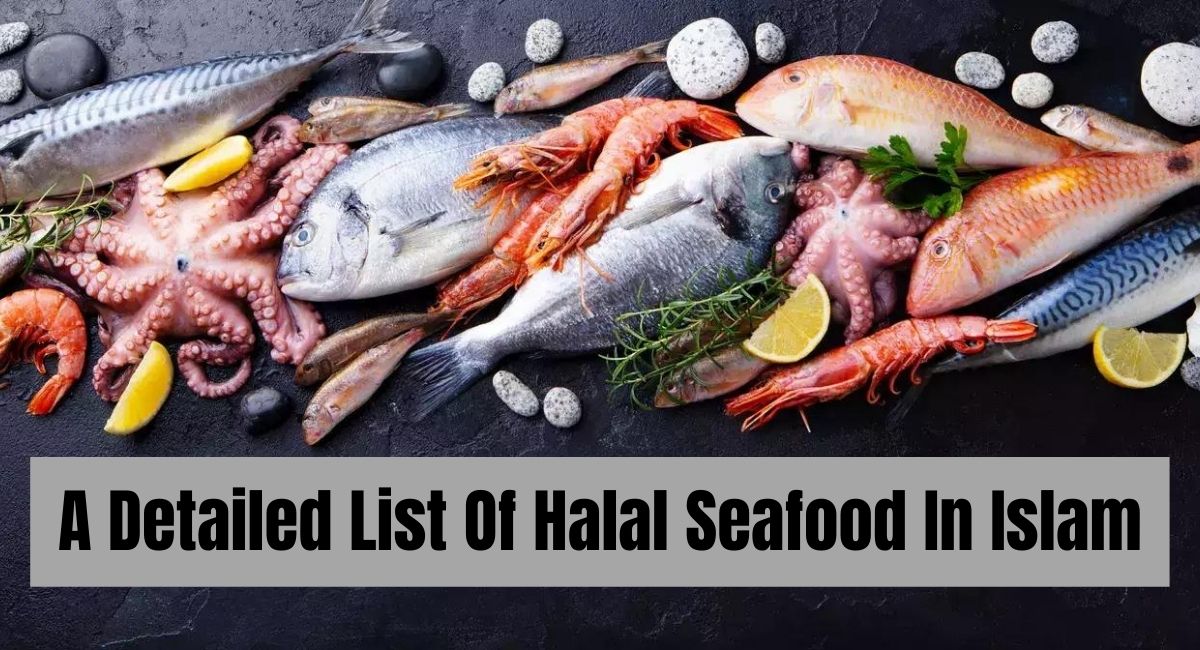Hey there! I’m Sarah from HalalFoodGuide, and today we’re gonna tackle a question that keeps popping up in our Muslim community – can we eat shrimp according to Islamic dietary laws? Let me break this down for you in simple terms.
Quick Answer: Yes, most Muslim scholars agree that shrimp is halal (permissible) to eat. However, there are some different opinions among Islamic schools of thought that we should know about.
Understanding the Islamic Perspective on Seafood
The Quran actually makes this pretty clear in Surah Al-Ma’idah (5 96)
“It is lawful for you to hunt and eat seafood as a provision for you and for travelers”
This verse basically gives us the green light for seafood consumption. But here’s where it gets interesting…
What Different Islamic Schools Say About Shrimp
Different scholars have varying views on this
-
Maliki, Shafi’i, and Hanbali Schools:
- Consider ALL seafood halal
- Explicitly permit shrimp consumption
- Base their ruling on the general permissibility mentioned in the Quran
-
Hanafi School:
- Takes a more conservative approach
- Traditionally divides sea creatures into two categories:
- Fish (with scales) – Considered halal
- Non-fish creatures – More debatable
- Some modern Hanafi scholars now accept shrimp as halal
Why Most Muslims Consider Shrimp Halal
Here’s why shrimp gets the thumbs up from most Islamic scholars:
-
Quranic Support
- The Quran doesn’t specifically prohibit it
- General permission for seafood consumption
-
Hadith Evidence
- Prophet Muhammad (SAW) said: “Its water is pure and its dead animals are lawful”
- This supports the permissibility of sea creatures
-
Modern Considerations
- Wide acceptance in Muslim-majority countries
- Global halal certification bodies typically approve shrimp
- Scientific classification as seafood
Real-World Practice in Muslim Communities
From what we’ve seen at HalalFoodGuide, here’s how different Muslim communities handle shrimp:
- Gulf Countries: Eat shrimp regularly, no issues
- Southeast Asia: Widely accepted as halal
- South Asia: Some hesitation due to Hanafi influence, but growing acceptance
Tips for Muslim Consumers
If you’re still unsure about eating shrimp, here’s what I recommend:
-
Check Your Local Sources:
- Consult your trusted local scholar
- Follow your community’s general practice
- Consider your family’s traditional approach
-
Look for Certification:
- Buy from halal-certified suppliers
- Check for proper seafood handling
- Ensure clean preparation methods
Common Questions We Get
Q: Does shrimp need to be slaughtered in a specific way?
A: Nope! Unlike land animals, seafood doesn’t require specific slaughter methods.
Q: Can I eat shrimp at non-Muslim restaurants?
A: Yes, as long as it’s not mixed with haram ingredients or cooked in alcohol.
Q: What about frozen shrimp?
A: Totally fine! Freezing doesn’t affect its halal status.
Practical Advice
When buying shrimp, I always recommend:
- Choose reputable sellers
- Check for freshness
- Avoid places that mix halal and haram foods
- Make sure it’s not cooked with alcohol or other haram ingredients
The Bottom Line
From my experience running HalalFoodGuide, I can tell ya that shrimp is generally considered halal by most Muslims worldwide. While there’s some difference of opinion, the majority view is that it’s perfectly fine to eat.
If you’re still unsure, it’s always best to:
- Follow your conscience
- Consult your local scholar
- Consider your family’s traditional practices
Remember, Allah made religion easy for us, and we shouldn’t make it complicated! Just make sure you’re comfortable with your choice and enjoy your seafood responsibly.
P.S. – If you’ve got more questions about halal food, drop them in the comments below! We’re always here to help our Muslim fam make informed choices about their food.
#HalalFood #IslamicDiet #MuslimLife #Shrimp #HalalSeafood

What is the Islamic Dietary Law regarding shrimp?
The Islamic Dietary Law, also known as halal, is a set of guidelines that Muslims follow when it comes to food and drink. One of the main principles of halal is that all food must be clean and wholesome. This means that there are certain restrictions on what kinds of foods can be consumed. For example, Muslims are not allowed to eat pork or shellfish.
Shrimp is one type of shellfish that is specifically mentioned in the Quran as being permissible to eat. This is because shrimp is considered to be a clean and wholesome seafood option. In addition, shrimp is a good source of protein and other nutrients.
So, if youre wondering whether or not shrimp is halal, the answer is yes!
Muslims are allowed to consume shrimp as long as it is prepared in a clean and wholesome way.
Why is Shrimp Halal?
Muslims are often unsure about whether shrimp is halal or haram. The reason for this confusion is that there is some debate amongst Islamic scholars about the classification of shrimp.
Some scholars consider shrimp to be a type of fish, while others consider it to be a type of shellfish. However, the majority of scholars seem to agree that shrimp is halal and can be consumed by Muslims.
There are a few reasons why shrimp is considered halal by most scholars.
Firstly, shrimp is not a predatory animal, so it does not fall into the category of animals that are haram to eat.
Secondly, shrimp is very low in fat and contains no blood, so it meets the requirements of halal food.
Finally, shrimp is a nutritious food that can be beneficial for health, so there is no reason to avoid eating it.
If you are still unsure about whether shrimp is halal or haram, you should consult with a qualified Islamic scholar. In general, however, there is no reason to avoid eating shrimp if you are a Muslim.
